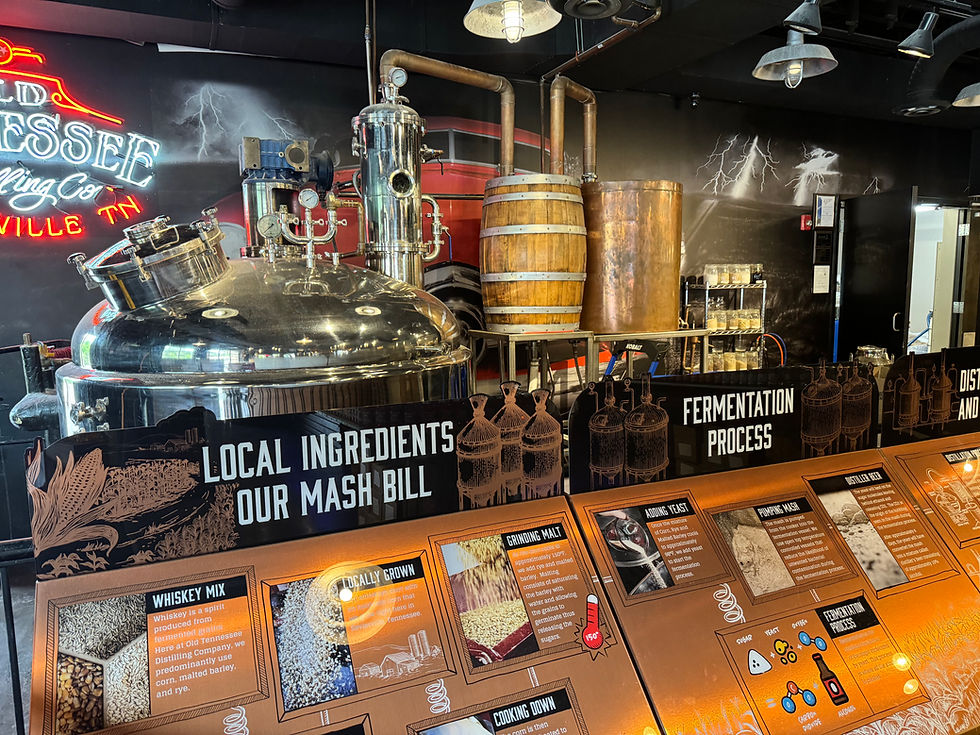Prohibition: A Tale as Old as Nashville
- Cody Witten

- Jul 9, 2025
- 2 min read

Ever wonder why cocktails in Nashville seem more expensive than the menu price suggests? Believe it or not, it all goes back to Nashville’s long (and wild) history with prohibition. Our city has one of the most unique—and repeatedly enforced—relationships with alcohol in the country. Here’s a quick look at how it all unfolded.
Nashville’s First Prohibition: 1784
Yes, you read that right—1784! That’s much earlier than most people expect. Back then, Nashville was still called Fort Nashboro. While local leaders were voting to create a court system for the new frontier town, they also passed a law banning the production of liquor.
The official reason? A grain shortage. But many believe the true motivation came from James Robertson, founder of Nashville and an early advocate for temperance. Either way, it marked the beginning of Nashville’s complicated relationship with alcohol.
Second Prohibition: 1838
Caught up in the rising temperance movement, Tennessee passed the first statewide prohibition law in U.S. history in 1838. It banned the sale of alcohol in taverns and stores—a big deal in a state known for producing whiskey.
Third Prohibition: 1862
During the Civil War, while Nashville was under Union occupation, the federal government banned whiskey production in the area. Why? Because so much grain was being turned into liquor that the Union army couldn’t feed its own troops. Once again, whiskey took a backseat to national priorities.
Fourth Prohibition: 1909
After the war, Tennessee bounced back as a distilling powerhouse—until 1909, when the temperance movement surged again and Tennessee enacted full prohibition, banning alcohol across the state.
And get this: Tennessee’s prohibition lasted until 1939—16 years longer than national prohibition!
Modern Era: 1939 to Present
Even after prohibition “officially” ended, its legacy lingered. It was illegal to sell liquor by the pour in Nashville until the late 1960s, and distilling was banned in Davidson County until 2012.
Today, we still feel the effects through what locals call the LBD Tax—that’s “Liquor By the Drink.” Every liquor-based drink sold in Tennessee is subject to an extra 15% tax, on top of the regular 9.75% sales tax. So next time you raise a glass of Tennessee whiskey and wonder why it’s so pricey… now you know who to thank.
Want to Learn More (and Drink Along the Way)?
Join our Historically Tipsy Pub Crawl to explore Nashville’s boozy past with a drink in hand. We’ll walk you through the city’s rich—and often hilarious—relationship with alcohol, while visiting local bars and hidden gems. Plus, we’ll even share tips to avoid overpaying on taxes when you order your next cocktail.
Cheers to history—and to never drinking alone!



